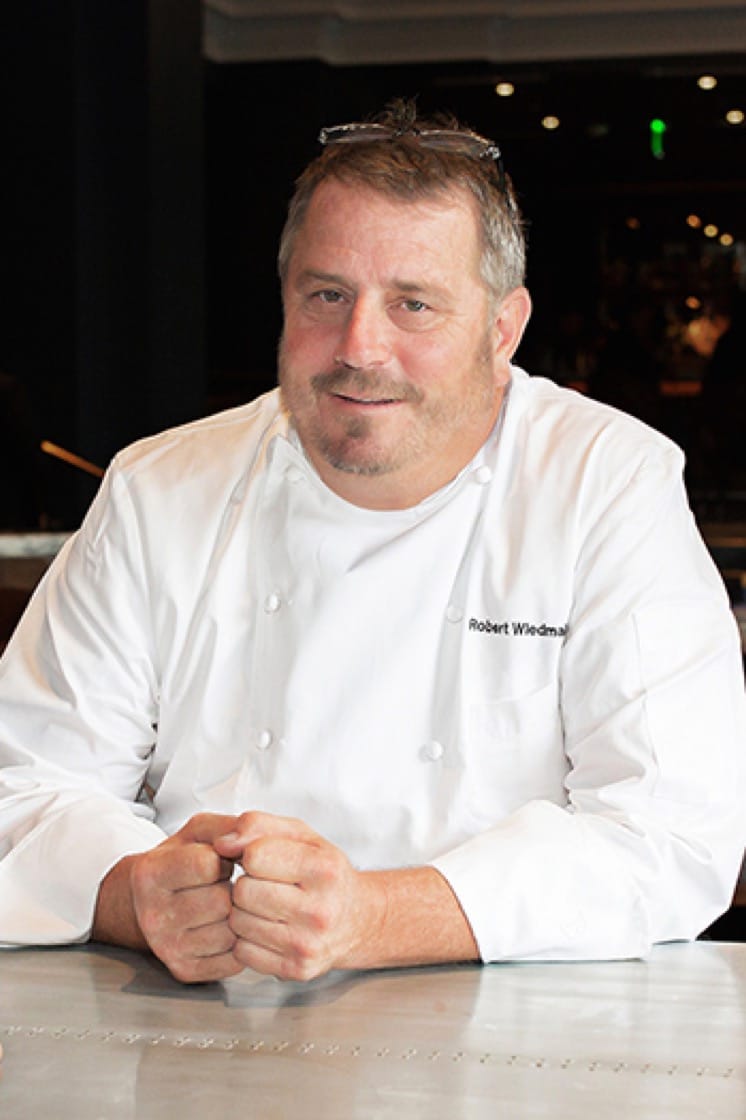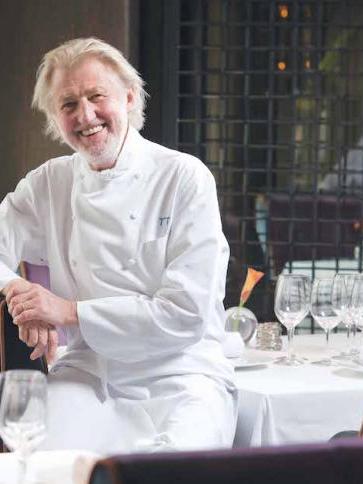Robert Wiedmaier has been a culinary fixture in the Washington, D.C. dining scape for well over two decades with a restaurant portfolio including his stalwart Marcel’s, Brasserie Beck and Mussel Bar.
But before becoming a prominent chef in the nation’s capital, the Wiesbaden, Germany-native honed his skills in Europe at venerable restaurants including Le Gavroche in London. “I ate at as many restaurants as I could as a broke cook,” he recalls.
Wiedmaier came stateside to the D.C. area in the '80s, cooking at Le Chardon d’Or in Old Town Alexandria, Virginia, as well as the Four Seasons under chef Douglas McNeil—“a Scotsman, but a Francophile”—and the famed Watergate, replacing Jean-Louis Palladin. He then went on to open Marcel’s—affectionately named for his son—in D.C.’s Foggy Bottom neighborhood in 1999.

RW Restaurant Group boasts a portfolio of 10 restaurants throughout D.C., Baltimore and Atlantic City. His latest venture, Siren by RW, opened in the spring of 2017. “With its gorgeous interior decked out in lush navy walls and supple leather banquettes, Robert Wiedmaier’s beautiful Siren, at The Darcy hotel, is a sophisticated ode to elevated seafood,” state Michelin inspectors. “The menu keeps things simple, dividing its offerings into categories like raw, vegetables, fish and meat. For those looking to enliven things a touch, there is an excellent caviar service and tasting menu option.”
Siren by RW received its first Michelin star in the MICHELIN Guide Washington, D.C. 2019.
The chef, who turns 60 this year, is happy with his life and isn’t looking to open any more restaurants anytime soon. “It’s been a great life being a chef from a very young age and I don’t want to ruin it,” he says. “I want to go out gracefully at 70.” And before then, he has one goal: “Get Marcel’s the Michelin star it deserves.”
I was really young. Probably in my first Michelin-starred restaurant in 1980—it was called Thermidor in the Netherlands where I went to culinary school. I was always about Michelin—it was always my aim.
What were your thoughts when you knew Siren received a star?
Well, first I thought it was going to be for Marcel’s (laughing). We were really happy with Siren—when I first got the phone call, I thought it was awesome. We were very excited.
How did you celebrate?
I had to wear two faces that night because my staff at Marcel’s was throwing up [while] my staff at Siren were all happy. It was bittersweet. I told my staff at Marcel’s that we’ll go for it next year.

How much influence/inspiration does the MICHELIN Guide have on your career?
Michelin has been in my life forever—if you were brought up with it and lived it your whole life, it’s huge. It was a big time game changer when it came to D.C. Americans that aren’t world travelers didn’t know it as much—that’s how you traveled through Europe, you made your plans through the guide.
Does having a star change the direction of your restaurant?
I look at Michelin as what a Michelin-starred restaurant should be: ambience, service, food. All three have to be superlative—they have to be the best. That’s what they expect in Europe. At Siren, the first thing I did was bring my Marcel’s team in to train the Siren team—and I had to limit the reservations. I wouldn’t want to walk into a Michelin-starred restaurant and have mediocre service. I expect unbelievable service and an unbelievable wine list. We’re working diligently on that. We’re getting a lot of good applicants now; all the young kinds want to work at Michelin-starred restaurants. I’m old school.
What advice do you have for young chefs aiming for Michelin stars?
What I’m teaching them is that it takes a long time to be a Michelin-starred chef. You gotta know everything. You need to know how to shine the copper, hot to peel a shallot right, how to make a proper torchon foie gras. It’s not working for someone for two years and then you’re a chef de cuisine—and that’s what’s going on across the board everywhere. There’s not really an apprenticeship program [anymore]. You shouldn’t take a chef position until you’re at least 30 years old. That’s what I try to preach to young chefs.
That said, some of them would disagree with me and say that with the power of YouTube and Google, you can learn it online. Which has some truth to it. If you have an innate talent and you follow directions really well, then you probably can learn a lot. But you’re missing all the blood, sweat and tears of getting there.
Photos by Scott Suchman.



















